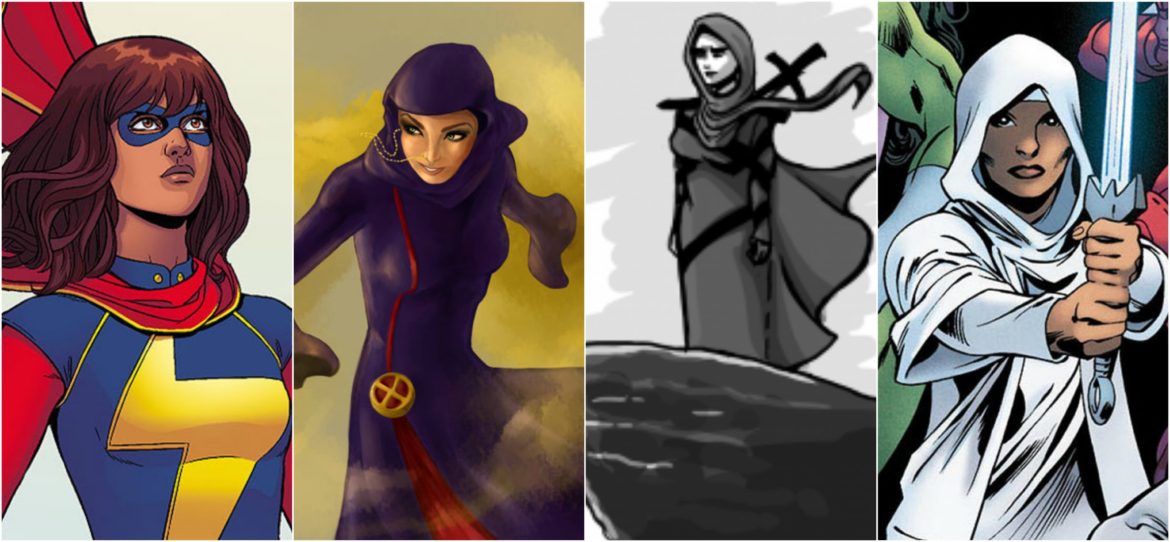
Middle Eastern Hijabis as Superheroes
In the late 1980s, feminism in the Middle Eastern and North African (MENA) context gained prominence in international debate. Research addressed “the status of women in Muslim countries through two frames: the inhibiting effects of Islam and the potential for reform through norms building.”
Many contemporary scholars concluded, “Islam, specifically the prevailing interpretations of Islamic law (Shari’a),” the prevalent cultural traditions enshrined within this religion, and the attitudes it informs and fosters reinforce gender inequality in Muslim countries. As such, in the twentieth century, women in the MENA region came to be understood as a marginalized group denied the rights to education and to the work force, and to their incontrovertible human rights as enshrined in the Universal Declaration of Human Rights.
Today, the understanding of women’s roles within MENA cultures continues to be depicted through an ethnocentric lens based on Western norms and contexts, but these views are also tempered by accounts of individuals who have personally experienced the curtailment of their rights. Regardless of accusations of ethnocentrism or the revealing of grim realities for women, the widespread depiction of MENA women as oppressed victims is currently being challenged in the most graphic of ways. Particularly in Egypt—and via social media, beyond Egypt’s borders—the emergence of modest hijabis as comic book superheroes creatively challenges restrictive patriarchal norms and rising misogyny.
Reinventing Superheroes: The Creation of Qahera
The comic book genre was and is largely shaped by the West and portrays a narrow understanding of gender. The easily accessible pop culture created by the comics’ world bombards the globe with “images of white (usually American) men saving the world … [that reinforces] the subliminal message that ‘everyone else is helpless and unable to protect themselves.’” In parts of the world where there is practically no locally produced entertainment, shows with these themes become popular because of leading television companies’ willingness to import socially and culturally irrelevant programming.
Challenging this status quo, Deena Mohamed, a 19-year-old Egyptian graphic design student, published in June 2013 the first comic strip of Qahera, a witty hijabi superheroine who fights crime and prejudice on the streets of Egypt. Qahera, the Arabic word for “Cairo,” “conqueror,” “omnipotent,” “vanquisher,” and “victorious,” is emblematic of a new breed of Arab Muslim comic superheroine combatting the widespread stereotype that women who dress in modest Islamic attire cannot be strong. In one interview, Deena explains her inspiration for creating Qahera:
I wanted to create a superhero to face some of the things that frustrated me … I feel like there is a need for female Muslim superheroes who actually deal with the real-life issues we face instead of fictional supervillains (because let’s face it, half of the things Muslim women have to deal with feel like they’ve been concocted by supervillains).
Author: Ricky Aggarwal
Image: qaherathesuperhero.com
Publication date: June 11, 2019
View NGOs supporting Women in the Arab World
Click to Help empower Women, free without cash or credit card or registration



Copyright © 2024 The Olive Tree SAL, all rights reserved. Terms of Use | Privacy Policy